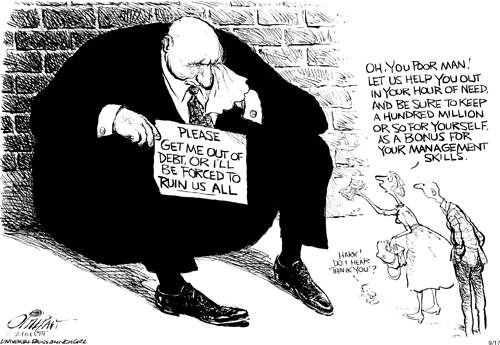Back and Catching Up
Posted by Urs Schreiber
After my stay at ESI in Vienna # I spent a week hiking in the Alps with my family. Amazing how much one can miss in one week. Below a list of things I need to catch up with.
The next two weeks I’ll be in Zagreb, visiting Zoran Škoda and Igor Baković with whom we are working on a project on nonabelian differential cohomology (with David Roberts, Hisham Sati and Danny Stevenson). I am hoping to be able to say more about this in a while. Am planning to talk about something at least related at Higher Structures 2008 in November.
Here the list of things to read which I missed last week. And even this list is gonna be incomplete, as I am running out of time…
First of all, my own thread on Planar Algebras, TFTs with Defects. There were a bunch of very useful comments.
As Jens Fjelstad pointed out I should read Subfactors and 1+1-dimensional TQFTs by Kodiyalam, Pati, and Sunder.
As Liang Kong rightly emphasizes , I should blog about Ingo Runkel and Rafal Suszek’s Gerbe-holonomy for surfaces with defect networks.
Then of course The Volume of a Differentiable Stack and especially the stuff that David Ben-Zvi mentions.
Another thing: on the axiomatization of higher categories. Bruce Bartlett kindly wrote in to alert me that somebody here should blog about Eugenia Cheng’s latest Comparing operadic theories of -categories.
Yet another thing: on the axiomatization of quantum field theory. I need to look at the big project by Steve Hollands: Quantum field theory in terms of consistency conditions I: General framework, and perturbation theory via Hochschild cohomology.
And as Jim Stasheff kindly points out, I should blog about the highly interesting new piece by Sergei Gukov and Edward Witten: Branes and Quantization
Abstract: The problem of quantizing a symplectic manifold (M,\omega) can be formulated in terms of the A-model of a complexification of M. This leads to an interesting new perspective on quantization. From this point of view, the Hilbert space obtained by quantization of is the space of strings, where and are two A-branes; is an ordinary Lagrangian A-brane, and Bcc is a space-filling coisotropic A-brane. is supported on , and the choice of \omega is encoded in the choice of . As an example, we describe from this point of view the representations of the group . Another application is to Chern-Simons gauge theory.
More later.


Re: Back and Catching Up
I was asked by private email about conference recommendations this year and next year. Here are some things I am interested in:
first of all, as mentioned above, I’ll be at
Higher structures 2008, November 3-7, 2008, Lausanne
Then next year:
I’ll be in Oberwolfach June 7-23, 2009, Strings, Fields and Topology
(this is by invitation, but if you are desparate I guess there is still plenty of time to contact the organizers)
Then there is this event which I am hoping to be able to attend at least in parts:
August 3-8 2009, Prague, XVI International Congress on Mathematical Physics
and the sattelite workshop
July 29-31 2009, Göttingen, Algebraic QFT - The first 50 years
Finally, I have just been alerted to apply for Autumn 2009 at the MPI Bonn where Stephan Stolz and Peter Teichner will organize a meeting on functorial field theory. Application requires a PhD, but there are also graduate programs.